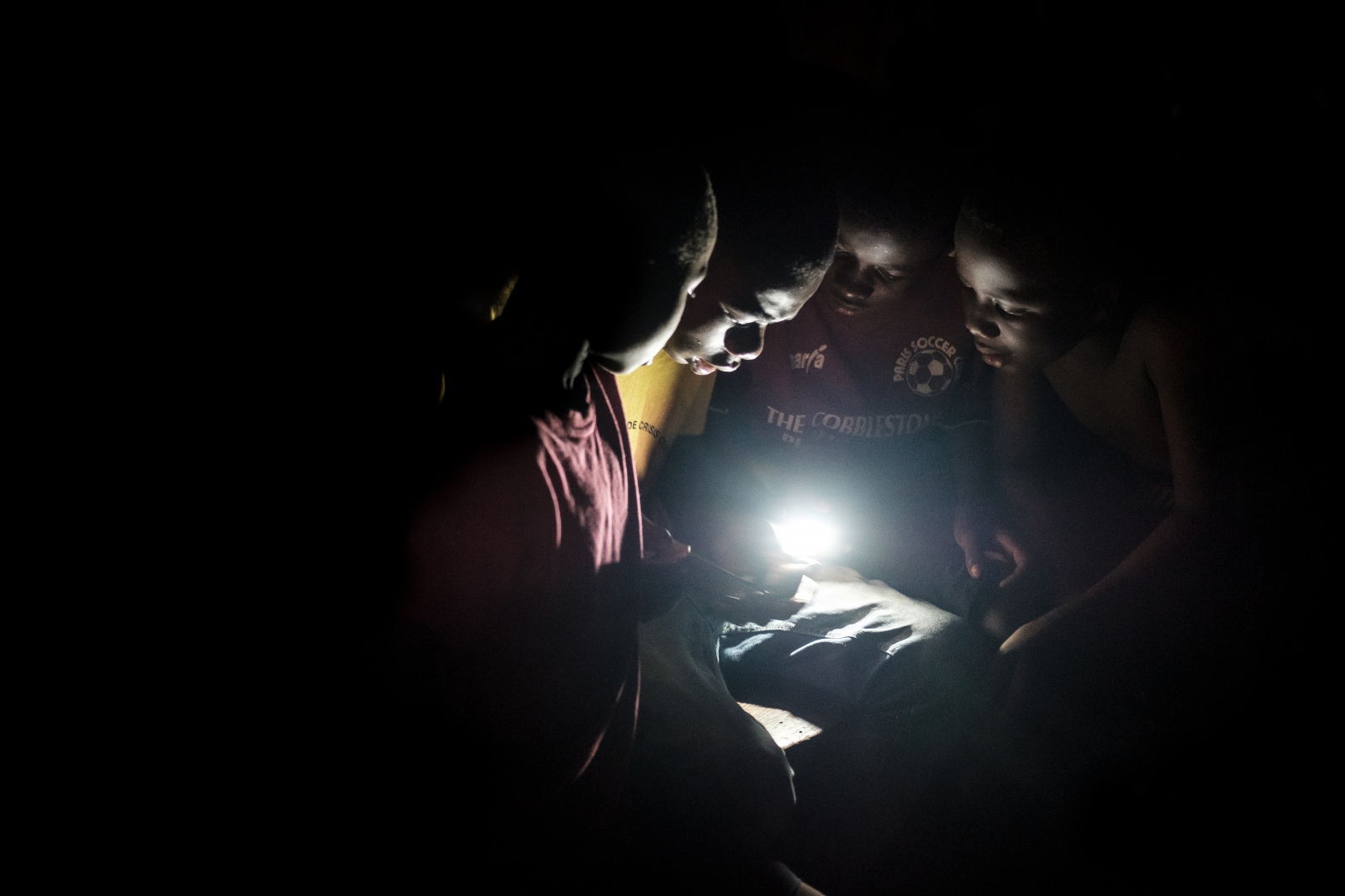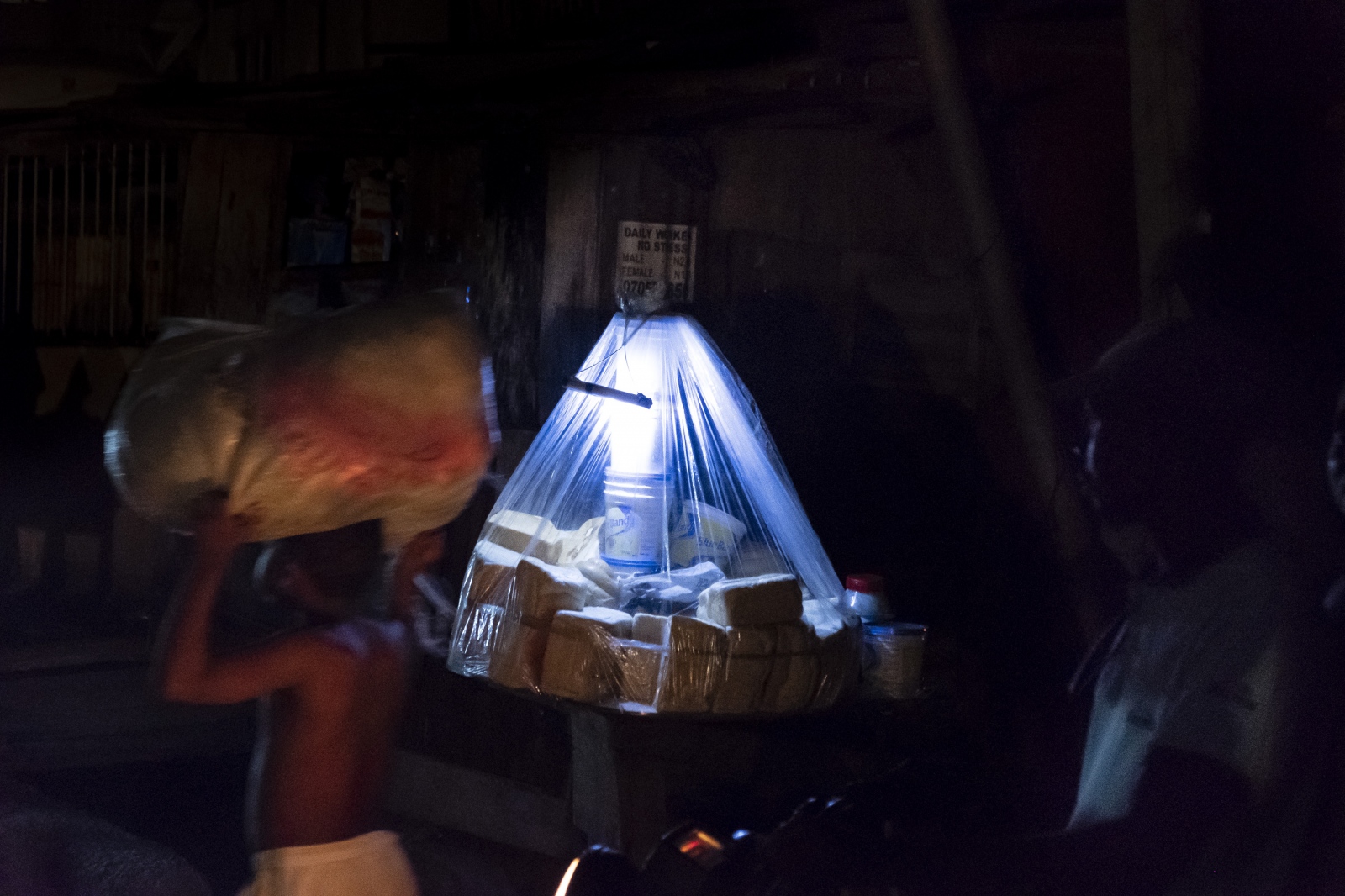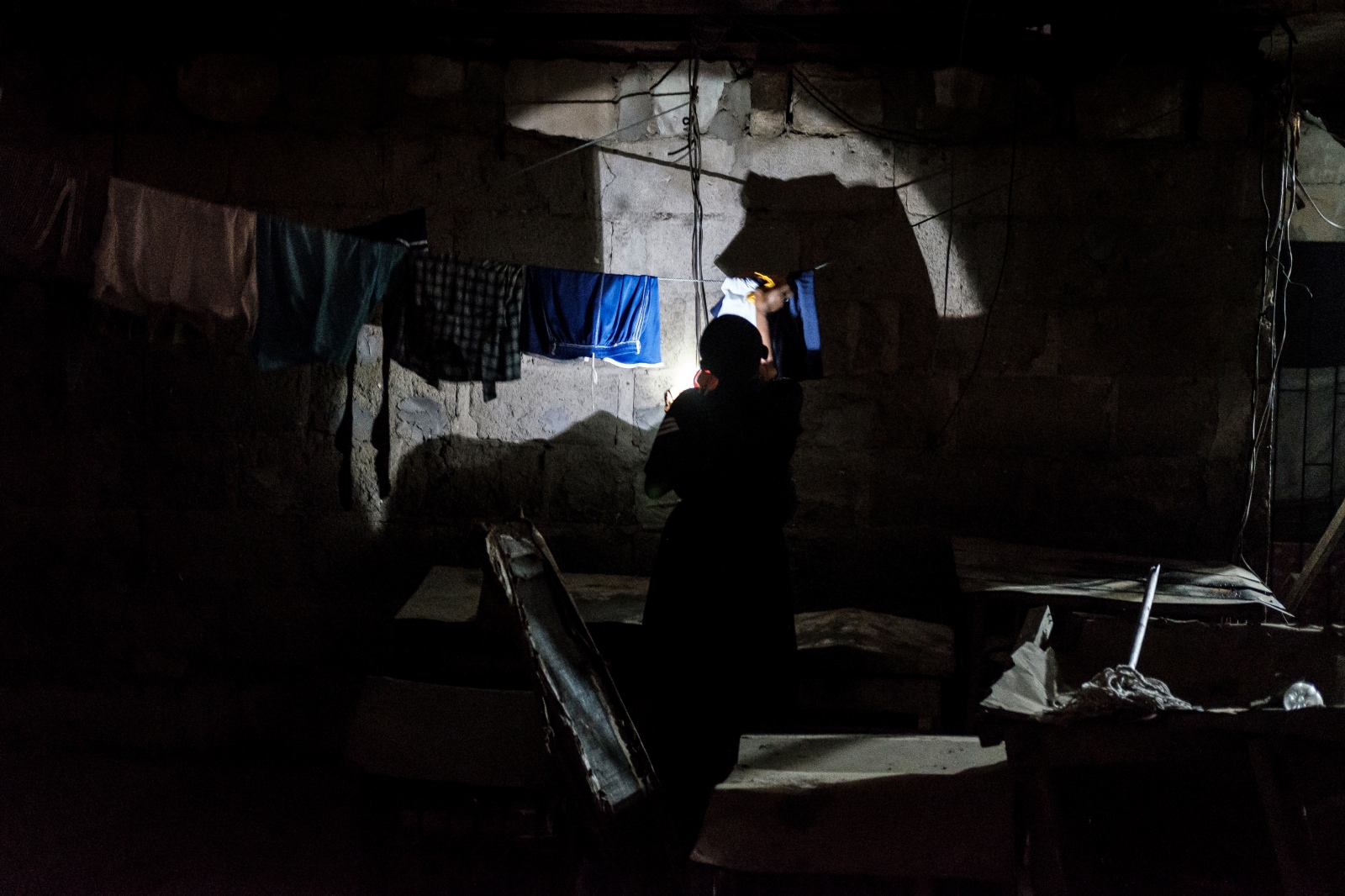Public Project
Bariga Nights
In 2016, I took up an apartment in this neighbourhood and since then have actively photographed therein, drawing from my everyday encounters with the inhabitants whom I consider as neighbours.
One of the most daunting infrastructural challenges of Nigeria is the lack – and in many cases, absence – of electricity, and a place like Bariga is not spared. Nights in Bariga, when not mitigated by the numerous fuel-powered generators, are often dingy; dotted by intermittent flashes of haphazardly moving light points. I would eventually resort to going out at night to observe in detail how people get by in “darkness”.
The people employ other means of illuminating their environment, often relying on the cheap battery powered/rechargeable touch lights mostly imported from China. They go about their nightly preoccupations in what one, in looking from the “outside”, might call obscurity. However, rather than obscurity, I think instead of opacity – that which defies translation, enunciation or recognition in its right to opacity.
Thus, this series is about instances of uncountable, unaccountable miracles (of continuously making “something out of nothing”, of making lives matter) that exists within every fragment of diffracted light sources. It is like extracting a strand of light-dark moments from uncountable others. Strands that give a glimpse of how lives are lived in diffracted, unaccountable realities, and how light and shadow are complicit, in no simplistic order, in the sculpting of a people's will to live and thrive against many odds.
On a different level, this project opens up a space for interrogating the traditional definition of photography as “drawing with light” (more so, where it has to do with photography’s ability to reveal, illuminate or clarify). What happens when one draws from a place of darkness, of opacity, of the untranslatable? In my case, the eye gets accustomed to darkness such that it becomes possible to see in the dark. What I saw or did not see, through the lens of my camera, changed with time. I was implicated in this revelatory process of “un-seeing” – a process so necessary that it ought to come before any conversation about progress, hope or self-empowerment.
22,701


















